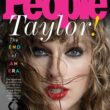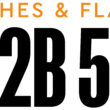After a deal this week to divest his regional newspapers, the last of Britain’s press barons is wrestling with the deluxe dilemma of whether to ditch (or de-merge) his national press birthright in order to concentrate on some remarkable ‘new media’ investments. Family dynasties can find it extraordinarily difficult to turn their backs on the past, whatever the risks or rewards.
The announcement that the quaintly-named £2bn-turnover Daily Mail & General Trust is selling its regional newspapers into a new company Local World plc is significant for many reasons.
First, this is probably the start of a profit-maximising consolidation of the country’s declining local newspapers under independent ownership. Local World (led by former Trinity Mirror chief David Montgomery) has started with DMGT and the family-owned Iliffe group. It is expected, along the way, to absorb newspapers from Trinity Mirror, Johnston Press et al. Second, the c£100m part-cash, part-shares valuation of the DMGT papers is just 10% of what it is believed was turned down in 2005 – sticking out for a £1.5bn offer that never came. Third, it is a historic divestment by a company which has been involved in Britain’s national and regional newspapers across almost 120 years and poses some intriguing questions about what comes next.
There may be no more interesting example of a traditional media company coming to terms with the digital future. DMGT was founded in 1896 by the newspaper pioneer Alfred Harmsworth (later Lord Northcliffe) who launched the country’s Daily Mirror and the Daily Mail in the late nineteenth century and once owned The Times, Sunday Times and The Observer. The company’s current chairman is Northcliffe’s great great grandson Jonathan Harmsworth (the fourth Lord Rothermere) whose family neatly grips minority control of the public company through its 60% of the voting shares.
Harmsworth is deep in thought about dynastic things and how his quasi family firm might change for the future. Forget the £900m he (may or may not have) tossed away by dreaming too long about the continuing value of regional newspapers. DMGT has plenty of great things happening. Consider just four of them.
1. Quake-gold. The company’s largest wholly-owned profit-maker is Risk Management Solutions, described as “the world’s leading producer of models, services, expertise and data solutions for the quantification and management of catastrophe risk” whether in earthquakes, hurricanes or terrorism. This was a classic bedroom technology start-up in 1988 by former Stanford University student Hemant Shah and his earthquake engineer father, with $30,000 in seed money raised from personal savings and credit cards. Now, 24 years later, hundreds of leading insurers, trading companies and financial firms rely on Shah’s analytics and pay handsomely for his expertise.
RMS is a world leader and a brilliant business. It continues to grow through the release of new products and catastrophe models. And the 9/11 terrorist attacks, which cost the insurance industry an estimated $40 billion, drew its sophisticated models into analysing the terrorism risks against property in the United States.
You can imagine the mainframes were whirring profitably last year with the Japanese earthquakes; and last month with Hurricane Sandy. Risk management is a business that keeps on growing for DMGT which paid a maximum of £120m for RMS in 1998 – about twice its current £56m operating profit and two-thirds of turnover. That says great things about corporate talent-spotting. And the fact that DMGT ownership hardly figures in RMS promotional material or web sites also says something about the light-touch, low-ego management style that appeals to vendors (like Hemant Shah) who want to stay and grow their businesses after acquisition. It’s a winning strategy.
2. Euro-millions. Nowhere has this pragmatic DMGT approach to managing major investments been more successful than at Euromoney. The magazine, which was launched in 1969 by the Daily Mail’s financial editor Patrick Sergeant with £6,000 of the paper’s cash, became a financial publishing powerhouse by tracking the rapid growth of the international capital markets.
The “euromarket”, after which the magazine was named, was the predecessor to today’s global capital markets, whose growth was championed by Euromoney, in the process of becoming arguably the leading magazine of the wholesale financial world. It spawned a range of information services, conferences, training courses and exhibitions – and has consistently been one of the most profitable specialist information companies. It has sustained growth, through good times and bad, by aggressive exploitation (especially through sponsorship) of events – and a succession of (mostly) well-timed acquisitions. Observers have noted the company’s tight cost control juxtaposed with very high senior management rewards – and (more or less) uninterrupted profit growth.
Today, Euromoney Institutional Investor Plc publishes more than 70 titles in print and on-line, including Euromoney, Institutional Investor, and Metal Bulletin, and is a substantial data provider through brands like BCA Research, Ned Davis Research and ISI Emerging Markets. Although it is a public company listed in London and Luxembourg, Euromoney Institutional Investor Plc is 70% owned by DMGT – its most profitable investment. Last year, it made an operating profit of £112m at a margin of 28% – managing to grow despite financial market recession.
3. Fabulous free. Perhaps it should not be surprising that DMGT – as one of the UK’s most successful newspaper publishers over the past 40 years – should be responsible for the country’s newest and most profitable national newspaper. Not the Daily Mail, but the free tabloid Metro.
This bite-sized reading for commuters increasingly seems like the perfect complement for digital-savvy young audiences who have other ways of getting more information and longer reading if they want it. Advertisers too are flocking to this new-style free newspaper (as also, in a different context, to the independently-owned UK financial daily City AM) because of clear readership strengths at a time when paid-for newspapers continue to slide.
DMGT’s Metro has a 1.3m circulation and is distributed principally at railway stations in London and UK regional cities, with some editions in joint venture with local publishers. This comparatively small five-day newspaper is booming and may now be making profits of some £35m from revenues of £89m – equivalent to more than half of profits of the Daily Mail and Mail on Sunday which themselves are still outperforming their declining market.
Metro is another reminder that new, well targeted, relatively low-cost media businesses can quickly produce profits in ways unmatched by traditional publishing. That goes also for DMGT’s gutsy online adventure.
4. Online explosion. Mail Online has become the world’s largest newspaper website, with some 100million page views per month. Or has it? UK readers of the Daily Mail newspaper have sometimes been surprised by the fact that Mail Online is not like their newspaper at all. It is an online service that has been able to grow strongly across the world by making extensive use of web analytics. The Mail was one of the first consumer publishers to realise the vast potential of search engines to build online readership among readers searching for content rather than for specific media brands.
So, Mail Online slavishly tracks the analytics to ensure that the site features all the topics that are trending at any one time. It’s more showbusiness and more American. The site’s revenue has increased by 74% during the past year to £28m and it is believed now to be profitable. It is broadening its editorial coverage and advertising sales internationally in what looks like a pre-emptive attack on growing news aggregators like Huffington Post. It has already dwarfed the BBC for worldwide online reach.What is very clear is not only that Mail Online is not the Daily Mail, but also that this powerful new franchise may not actually need too much of the group’s newspaper resource at all. It would be a great business anyway and may yet take DMGT into social networking and a highly-profitable life all of its own.
But, then, that is the challenge for DMGT. The four starring businesses above account for some £200m – or two-thirds of the group’s entire operating profit. Add DMG Information (which generates some £48m of decent-quality profit from information services across property, education, finance and energy) and you have a whole collection of businesses that together could generate more profits (and profit growth) than the entire DMGT group.
Other highly profitable businesses (like, for example, trade exhibitions) also enhance total profitability, making clear that newish (mostly business-to-business) operations are delivering the group’s profit growth. In total, business-to-business accounts for a striking 73% of all DMGT profits but 46% of revenue. This will increase to 79% of all profits after the divestment of the regional newspapers. A clear case, however you slice it, of DMGT’s total market value being very much less than the sum of its parts – and not very Daily Mail at all. Stock market investors have noticed.
So what will happen next?
The fourth Lord Rothermere inherited the company at the age of 31, looks young for his years even now – and is easy to under-estimate. He is often described as emotional, works a ‘land-owner week’ (i.e. mostly the days that start with a T or W) but is an enthusiastic supporter of innovation in DMGT. Although he may have managed to ‘lose’ a cool £900m on that earlier non-sale of the regional newspapers, he did get to the need to sell them in back in 2005 – a few years before the rest of the world had given up on such local media. And Metro and Mail Online – and at least some of the B2B operations – have directly benefitted from Harmsworth’s enthusiastic support and encouragement.
But nobody should doubt the emotional ‘weight’ of a fourth-generation family business whose current leader will keenly feel the responsibility to ensure his own son eventually inherits an (even) better business than he did. That may be tough in times when many other traditional media businesses will not even survive. The previous three generations of his family (after Northcliffe) managed to distinguish themselves by improving a newspaper business. His own father, who inherited the business in 1968, made his mark with the 1970 relaunch of the Daily Mail as a mid-market tabloid which transformed the company’s finances for the following 30 years. The newspaper that had, in 1902, become Britain’s first million seller, climbed back to 2million over decades during which most other circulations were falling fast. It was a game changer for the market and for DMGT – which then had the cash for the US and B2B expansion whose value today exceeds that of the whole group.
The Daily Mail in its heyday created a new level of political influence for the Harmsworths generations after Lord Northcliffe first struck fear into British politicians. The strident tabloid gave DMGT even more than that. Euromoney ultimately changed the whole balance and future of the DMGT. It also inspired the company to develop strongly into business media – and to manage its portfolio of businesses in almost a private equity way, divesting companies nearly as frequently as acquiring them. In the last year, it has closed or sold 41 businesses and “only” acquired 27.
It is this portfolio approach to media properties that marks out DMGT and is a major strength in an era when technological change dictates the need for experiment and, often, cannibalisation of existing businesses. Daily Mail insiders lament a familiar legacy problem of getting old newspaper-geared businesses to change their approach. But that too is the other side of a light-touch central management which gives managers the freedom to manage – and motivates a founder like Hemant Shah to keep piling up the profits for DMGT 14 years after he sold-out.
As the fourth Jonathan Harmsworth approaches his 45th birthday next month, he is aware of the momentous step his father took at the same stage in his life – the Daily Mail relaunch. What will be the son’s game-changing legacy?
His challenge is to decide whether to seek to build the largest fortune or to preserve the essential character of the family business he inherited. If he choses the former, he might: push digital development even more strongly outside his current preoccupation with the UK, US and Australia and particularly towards Asian growth markets; sell-off (or demerge) the remaining news businesses, notwithstanding the current, highly-attractive growth in Metro and Mail Online; and, along the way, increase the value of the company by reducing his family’s control of the voting shares -which this year caused DMGT’s relegation from the investor-focused ranks of FTSE 250 companies.
But this is a company which regularly regales glazing-over analysts with the glorious nineteenth century achievements of the mercurial Lord Northcliffe, seemingly trying to foster the belief that the Daily Mail is the pinnacle of its business achievement rather than a dwindling share of the modern business. And DMGT’s 2011 annual report indulgently paid tribute to the diversification policies of Jonathan Harmsworth’s father who had died 14 years before. So, it is no surprise that he has reportedly seen off an attempt by the current DMGT CEO and Finance Director to change the name of the group to reflect more accurately its composition and growth prospects.
Making the most of its worldwide business opportunities inevitably prompts DMGT to stop being sentimental about its daily newspaper heritage. But don’t be fooled by this week’s divestment of the regional newspapers. The oldest of those have “only” been in the family for 80 years, i.e. since the death of Lord Northcliffe. The Daily Mail is, metaphorically, still holding up the building.
Jonathan Harmsworth, who can seem more absorbed by (and visible in) the business than was his tax exile father, is passionate about the DMGT record for new product development. The Metro and Mail Online successes reflect that. He may stand firm on some of the legacy issues, despite what the numbers say. But the calls are getting louder. Even now, 51% of all DMGT profits (but only 29% of revenues) come from North America. This is an international business waiting to be set free from the dragging anchor of its decaying UK daily newspapers. And there is no shortage of management consultants dispensing their advice on the logic of turning this sprawling conglomerate into at least two separate businesses – transforming corporate growth prospects and the family fortune in the process.
My guess is that Britain’s last Press baron will eventually heed the advice of consultants and investment bankers and, some time over these next 1-2 years, will hive off the consumer businesses. The combination of Mail Online, Metro, Jobsite and the Mail newspapers are certainly a much better spin-off prospect for investors than Rupert Murdoch’s patchily-profitable newsprint in the UK, US and Australia – which is set for sanitising divestment by News Corp in 2013.
The fourth Lord Rothermere will stick with the hunting, shooting and fishing of his ancestors. But he will get increasingly comfortable with the data-rich, fast-growing international businesses – and put his volatile consumer inheritance on one side. This de-merger / divestment would enhance his wealth and, ultimately, enable him to bequeath a much larger business to his son and heir. He may not quite recognise the parallel with his Antipodean contemporary James Packer who decided to look forward and not back – by selling his Dad Kerry’s fading media businesses and putting it all into casinos. But Jonathan Harmsworth might do even better.



